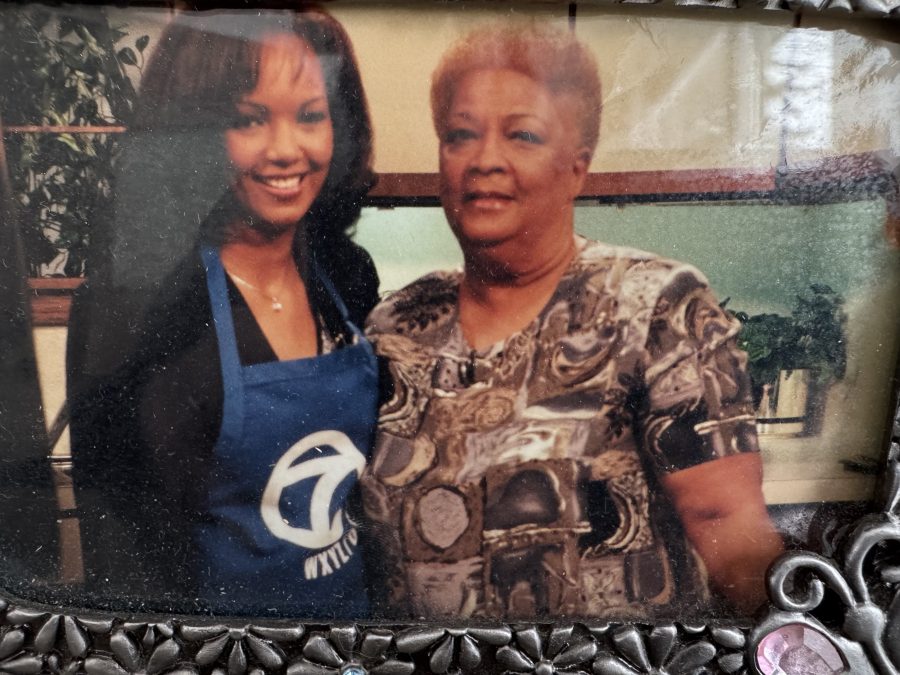Listeners share Black history stories with WDET for the Detroit Evening Report
Subscribe to the Detroit Evening Report on Apple Podcasts, Spotify, NPR.org or wherever you get your podcasts.
WDET and the Detroit Evening Report have collected Black History Month stories from listeners as a part of its Black History Listening Project.
Here are the stories we aired in February 2025:
Wyatt Tate made headlines in 1894
Detroiter Brenda McGadney grew up hearing stories about her great-grandfather.
Wyatt Tate, a farmer from Alabama, was made infamous after an incident with police arising from an animal being stolen from him while he was away on a business trip. After Tate successfully retrieved the animal, the town sheriff accused him of theft, and during his attempted arrest, Tate killed the sheriff, an assistant and one of the sheriff’s horses. After going on the run and evading police for months, Tate was eventually killed on May 12, 1894.
Using the internet and genealogical tools for research, McGadney found the story was a very big deal at the time.
“He is documented in more than 80 newspapers in 1894,” she said. “So, it went viral.”
McGadney says growing up, it was important to her mother, Annie Tate McGadney, that they knew of Tate’s story. She had learned it from her own father, Felix Tate, who witnessed the events in 1894.
“My mother brought us up to speak up, not only for yourself, but for other people who are disenfranchised, who you see are being harmed,” she said.

McGadney also found references to Wyatt Tate in Harper Lee’s ‘To Kill a Mockingbird’ and in books about Lee who grew up in Monroeville. A cousin, actor and boxer Bill Tate, wrote a fictionalized account, “Little Wyatt Tate: Fiction Based on Fact.”
“When you travel in Africa, the question that Africans ask you, ‘Where do you come from?’” McGadney says, “I tell them that is a very painful question to ask an African American, and they don’t really understand it. We don’t know where we came from.”
McGadney says she has become her family’s griot, holding the stories of both sides of her family.
“This history is rich, and it covers both my mom’s side, which would be the Tates and the Clarks, and my dad’s side, which would be the Baldwins and the Jacksons and the McGadneys,” she said. “You need to be telling your story, and it empowers your children. It empowers our family.”
Iola Corbett witnessed the rise of Detroit’s Muslim community

Iola Corbett, also known as Sister Ameeda, was born and raised in Detroit.
Corbett’s family was a part of the Nation of Islam when she was a child.
Over the years she met Malcolm X, who visited her family’s restaurant in Detroit often.
“My mother was an excellent cook, so he had dinner with my dad every day, so I got to hear him, and I would serve him. He was a big influence in my family’s life,” she said.
Corbett says the Nation of Islam made her a part of something bigger.
“It…gave me a purpose of who I was, who I wanted to be…close with my community,” she explained.
Corbett would go on to become a union leader and to write the book “Growing Up Muslim and the Journey Continues.”
Carolyn Clifford tells her mom’s story

WXYZ TV reporter and anchor Carolyn Clifford tells the story of her mother often. She says she wants to inspire women dealing with domestic violence to leave, and to prove to children in Detroit that they can succeed despite hardship.
“I always tell Detroiters, especially young kids, when you see me, you see you,” Clifford said. “ So if your mom was on drugs, or your daddy on drugs, or, you know, somebody’s drinking alcohol…don’t be ashamed. There’s always a way out of a crazy situation, as I learned from my own mom.”
“And she would always say, you know, with God on her side, she could do anything.”
Bruce Simpson remembers Barbara-Rose Collins
 Bruce Simpson’s grandmother was the first Black woman to represent Michigan in the U.S. House of Representatives. Barbara-Rose Collins served in Congress from 1991 to 1997. She also worked in politics at the city and state level.
Bruce Simpson’s grandmother was the first Black woman to represent Michigan in the U.S. House of Representatives. Barbara-Rose Collins served in Congress from 1991 to 1997. She also worked in politics at the city and state level.
But Simpson says he wasn’t really aware that Collins was the “distinguished lady from Michigan.”
“I always just looked at her as grandma,” Simpson said.
Simpson has also entered public service. He is the Ombudsman for the City of Detroit.
WDET listeners are invited to share Black history stories about their families, friends and neighbors throughout the year via email at detroiteveningreport@wdet.org or by leaving us a voice memo in the WDET mobile app.
Trusted, accurate, up-to-date.
WDET strives to make our journalism accessible to everyone. As a public media institution, we maintain our journalistic integrity through independent support from readers like you. If you value WDET as your source of news, music and conversation, please make a gift today.
The post Listeners share Black history stories with WDET for the Detroit Evening Report appeared first on WDET 101.9 FM.

